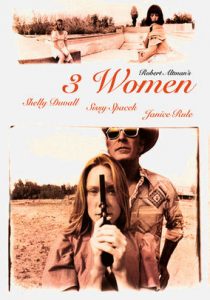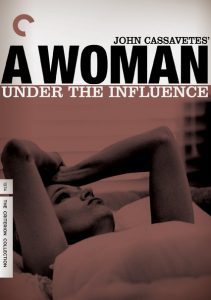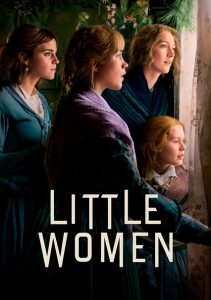3 Women-1977
Director Robert Altman
Starring Shelley Duvall, Sissy Spacek
Top 250 Films #91
Scott’s Review #578
Reviewed January 1, 2017
Grade: A
Robert Altman is one of my all-time favorite directors and what a pleasure it is to uncover additional gems that he has directed over the years.
I have seen 3 Women (1977) before but some films (the true greats) are like fine wines and get better and better over time, in addition to being appreciated more and more with each passing viewing.
3 Women is a prime example of this. The level of psychology and the changing personalities of the characters make it a unique and brilliant experience.
3 Women is a psychological feast and the study of three complex characters, hence the title.
How fantastic how Altman claimed to have dreamed the entire film, complete with Duvall and Spacek in the roles, and then attempted to recreate the dream on film- he has done a masterful job.
The film is dream-like with an interpretive element that will leave the viewer pondering not only the relationships between the three women but who exactly each woman is- consciously and sub-consciously. Lots of questions will abound as the film concludes.
The main relationship is between the characters portrayed by Duvall and Spacek.
Duvall plays Millie Lamoreaux, a chatty and confident woman, who works at a California health spa for elderly clientele. She is statuesque and gorgeous, but surprisingly not well-liked by her colleagues, two of whom are mysterious identical twins.
New employee Pinky Rose is a shy and vulnerable mousy type, who takes an immediate liking to Millie, becoming somewhat obsessed with her. The pair eventually move in together and begin to engage in a mysterious and sometimes volatile friendship dripping in jealousy and lust.
Eventually, they switch personalities, only adding to the mystique of the film. They reside in the Purple Sage Apartments, run by Edgar and Willie Hart.
Willie is the third woman referenced in the title and is a pregnant painter, creating unsettling murals marveled at by Pinky.
It has been argued that 3 Women was an influence on the David Lynch masterpiece, Mulholland Drive (1992), and the more I ponder this the more that I agree with it.
The dream-like, surrealistic qualities are prevalent in both films.
Peculiar, strong-willed women are the central characters in both films and psychology and amnesia are the main themes. The southern California setting is identical as are the interpretive elements, and the fantastically odd characters- both lead and supporting.
When Pinky’s elderly parents are introduced, this is uncanny to a pair of grandparents featured in Mulholland Drive. Both are superior films so the comparisons are a joy to think about and ponder the complexities.
Ingmar Bergman’s 1966 psychological film Persona is most certainly a large influence on 3 Women. That film dared to explore merging personalities among women.
The final scene of 3 Women is intense and thought-provoking. The lives of the women carry on following a tragic event, but each takes on a certain persona and role within the family unit that they have forged.
Among other qualities, I view 3 Women as a feminist film, despite being directed by a male. Altman was famous for allowing his actor’s free reign in dialogue and development and this most certainly had to be the case with 3 Women.
One of Altman’s masterpieces.
Altman is a genius in nearly every film that he creates, but 3 Women is probably his most cerebral, and the film that can be talked about and analyzed more than the others.
What a pure treat for a complex film lover to explore. 3 Women (1977) is not for mainstream audiences nor is it meant to be.



